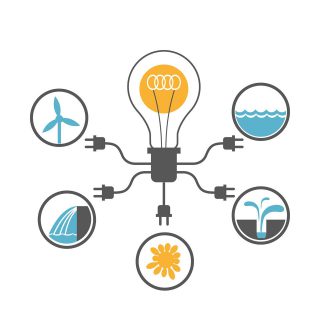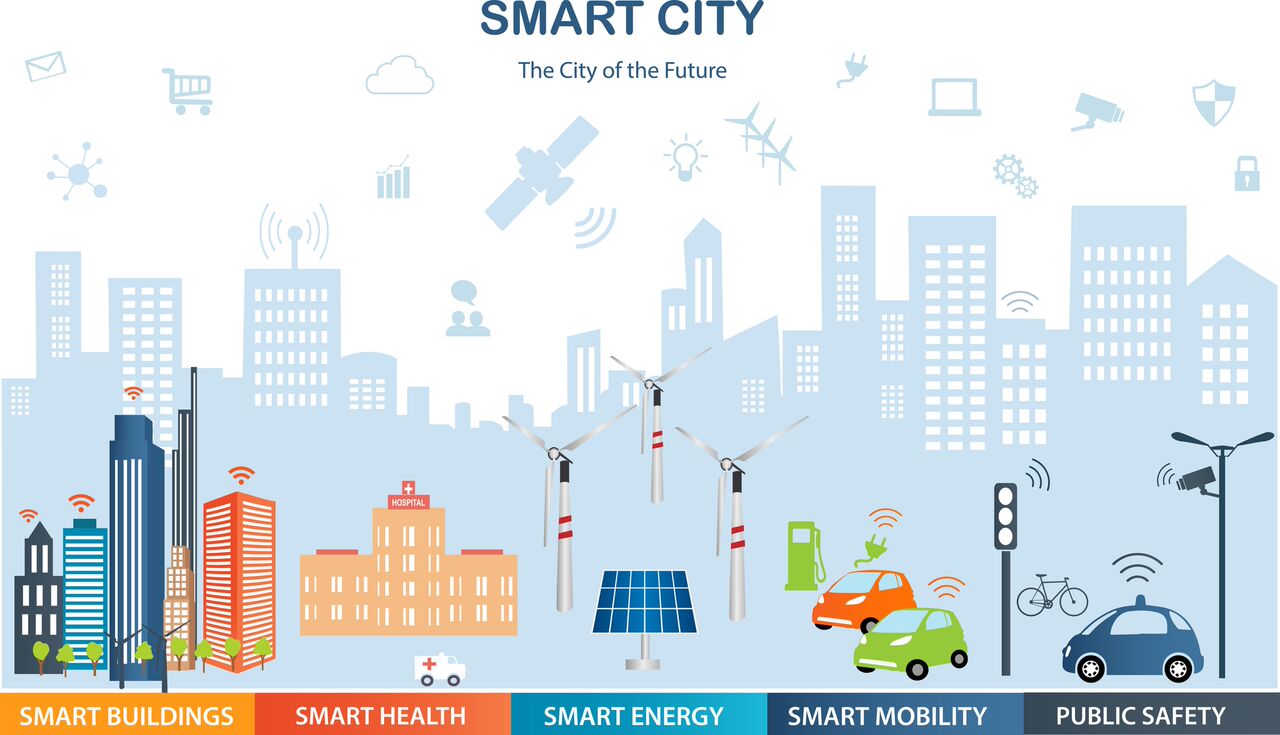Towards circular business models powered by renewable energies
Organisations including business, administrations, and civil society groups have to deal with the challenges caused by climate change and the developments in the energy sector – whether as producers, consumers, or both. Linear “Business as usual” needs to be replaced by new, sustainable and circular concepts.
To use the transformation towards sustainable business and organisation models to your best advantage, thorough planning is mandatory. Strategic and comprehensive forward thinking will make the difference between those organisations that drive and benefit from the coming changes towards the carbon neutral society, and those for which these changes just keep adding additional costs.
Below you find selected key trends and drivers in our areas of expertise that need to be taken into account in a strategic foresight process. For more detailed analyses, please have a look at
Selected disruptive trends transforming the energy sector
A complex set of short- and long-term trends is changing the energy sector. An interdependent mix of political, social, economic and technological drivers are increasing demand, price volatility, and supply insecurity. But there are as well new opportunities to reduce risks and costs.
Limited energy sources, especially fossil fuels, are replaced by renewable resources.
Ongoing mechanisation and automation will continue to increase energy demand.
Dissolution of the producer – consumer dichotomy. More and more actors will produce the energy they consume – at least in parts.
Development of various renewable resources – depending on the local context.
Decentralisation, downsizing and miniaturisation of energy production, transportation, and storage.
Build-up and Extension of trans-regional and intercontinental power lines
Increasing investment in alternative technologies and business concepts
What opportunities and risks present these changes to your organization?
Our services or Back to the top
Selected key trends caused by climate change
Climate Change has an impact everywhere. Average temperatures are on the rise. Extreme weather phenomena, like sudden and heavy torrential rainfall, peak temperatures, heat waves and droughts, will become more frequent and more intense. This is influencing production processes, consumer decisions, and social behaviour. At the same time regulatory frameworks change and related energy and emissions standards are tightened - worldwide.
Among the key trends are:
Increasing investment in GHG mitigation technologies, not limited to renewable energy production technologies;
Expansion of related local, national, regional and global policy and legal frameworks not only, but certainly because of the COP 21 Paris Agreement (see graph on the left);
Rising investments in climate change adaptation activities;
Growing de-investment in fossil-fuel related activities;
Intensification of emissions trading in specific regions;
A “carbon neutral” certification becomes a selling point;
The combination of development cooperation funding programmes with climate change actions.
You want more insight on the implications for your organisation?
Our services or Back to the top
Selected key trends concerning the future of cities and their global role
Since a few years the majority of humanity lives in urban centres. And in 2050, 2/3rds of us will live in cities. Cities will become ever more important as the centres of social and economic live. At the same time, they are the places where problems like air pollution, poverty, social exclusion or energy and food insecurities aggravate. New, smart concepts concerning transportation, zoning, city climate systems, housing, etc. will become crucial to make a city a place of innovation, prosperity and inclusion. The growing importance of cities as political actors and problem solvers enhances their role in national and international arenas.
Smart energy policies become a crucial local government competence.
The development of new and sustainable public service concepts.
Local sectorial policies, like health, environment, transportation, or water and energy distribution follow grand strategies like "the carbon-neutral city".
Rising budgetary responsibilities and financial decision-making competences on the local level.
Public procurement regulation includes sustainability criteria.
New (electronic) ways of citizen's participation change decision-making.
You need more input on how this will change your organisation?
Our services or Back to the top




 Deutsch
Deutsch


